Prolific professor leaving DePaul for greener pastures
Benjamin Conboy | The DePaulia
Patrick Murphy’s office designed his office to “enhance performance.” A student of organizational psychology, Murphy has built his career on examining the psychology of entrepreneurship.
Patrick Murphy loves this place. He built his career here. He bought a condo that is only a three-minute walk from DePaul’s Loop campus so he could be there at a moment’s notice.
But now it’s time for him to move on. He’s been at DePaul for 15 years, since he was only 29-years-old. Murphy, now 44-years-old, just accepted a job as the Endowed Chair for Innovation in Entrepreneurship at University of Alabama Birmingham (UAB).
At DePaul, he’s developed programs and initiatives that have garnered him national acclaim. He proudly displays his baker’s dozen of “Teacher of the Year” awards in his office. Even though many of them were won almost 10 years ago, he can still rattle off how many nominees were put up for each one and which of his colleagues have also won each award.
During his time at DePaul, he helped pioneer a coding academy that taught students programming while intertwining it with relevant business skills. He also developed DePaul’s Social Enterprise Collaborative, which connects students with entrepreneurial ventures that incorporate some kind of social benefit into their business model.
But now he’s finally got what he’s been waiting for: the opportunity to lead.
“I haven’t really had an opportunity (at DePaul) to really lead this stuff,” Murphy said. “I will have the formal resources and structural support to do these things.”
DePaul never offered him the chance to lead. All of the programs he developed and the ventures he worked on weren’t required of him for his current job, but he did them anyway.
Eric Jack, the dean of the COLLAT School of Business at UAB, said that he will “have a big role to play” at the university.
“We are very happy to attract such a talented person like Patrick Murphy and we look forward to working with him,” Jack said.
The LinkedIn post in which Murphy announced he would be leaving DePaul became something of a viral sensation. Outpourings of support from students and colleagues, both current and future, flooded the comments section.
“Big loss for DePaul. … Your new position is well deserved. They should be ready for a great ride,” wrote Behice Ilhan, a professor in the College of Computing and Digital Media.
Being 1,000 miles away in Alabama still isn’t enough distance to keep him from the DePaul community, though. The relationships he has cultivated with his students are near to him – and he’s not really ready to give that up yet. He says he’ll still be available to all of his past students.
When remembering his students and the projects they’ve worked on together, he speaks about them with genuine pride and sentiment.
“I’m a big believer in this place,” he said. “I know firsthand that the culture here is like a strategic weapon. There’s something about this urban outreach-slash-upwardly-mobile smart kids who know how to roll up their sleeves and do things.”
His interest in studying entrepreneurship stems in part from his time in the Navy, where he claims he was one of the Navy’s youngest chief tugboat engineers at just 19-years-old. In a testament to his truly academic mind, he can still recite the firing order of those diesel tugboat engines 25 years later. He could practically jump back in and change a head gasket if someone asked him to.
Boot camp, which he calls “the great equalizer,” taught him the discipline that he weaponizes during his routine 60 to 70-hour work weeks at DePaul. His office is filled with ocean imagery and engravings of ships.
His most successful book, “Mutiny and Its Bounty: Leadership Lessons from the Age of Discovery,” takes inspiration from his seafaring past. He began to notice how burgeoning entrepreneurial ventures would reach a certain “tipping point” where the founding members of the business become unable to effectively lead. Others in the company want them out, so they coordinate their overthrow.
He and coauthor Ray Coye went back through the log books from ships during the age of discovery in the 1600s and found that the similarities between the way modern entrepreneurs and sailors approached their business.
He views entrepreneurship in much the same way as those early explorers saw the great unknown that they set sail for.
“The parameters, the risks, the uncertainty, the failure rates, had a lot more in common with each other than these large organizations do,” he said.
Looking forward, he sees the next big moment in entrepreneurship as being strikingly similar to the great beyond that explorers began to traverse in the mid-20th century: outer space.
“If you really want a comparison to Magellan and Columbus, then look to the cutting-edge entrepreneurs of today,” Murphy said. “The most cutting-edge entrepreneurship is outer-space oriented, like Virgin Galactic and SpaceX. The way we view space today is very much the way they, 500 years ago, viewed the ocean.”
His approach to his entrepreneurial studies is one born of philosophy. As a Ph.D. student, he became engrossed with the philosopher Karl Popper, who studied how ideas grow, develop and compete with one another.
“At some point, a lightbulb went off in my head and I saw entrepreneurs as if they were scientists, and I saw their entrepreneurial projects as if they were scientific ideas or theories,” Murphy said. “That was the first real research I did in the area but it’s led to a bunch of different articles, and it’s driven the way I teach entrepreneurship.”
Murphy has an entrepreneurial venture of his own. Along with a partner in New York, he breeds race horses. Right now, he has two, a male and a female.
Despite his business acumen, he doesn’t breed them for the financial gain – though he does love racing.
“I’m an animal lover,” he says. “I want to improve the way that all animals are treated, but in particular race horses. I’m not in it to make money, I’m in it for the experience and the welfare of the horses.”
Murphy, not unlike his horses, is a chaser. The next study. The next idea. The next challenge.
The next opportunity.


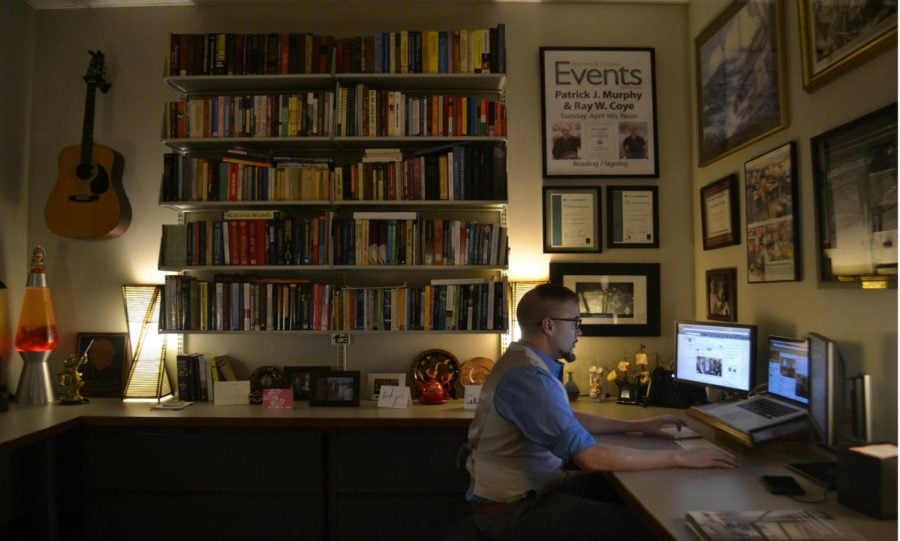
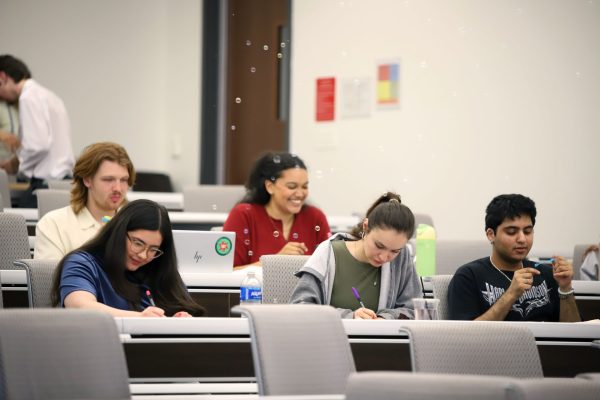
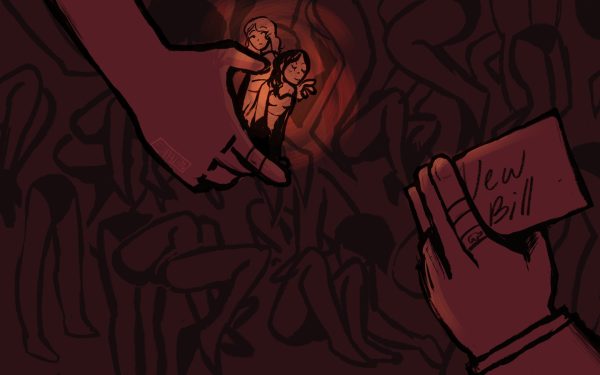
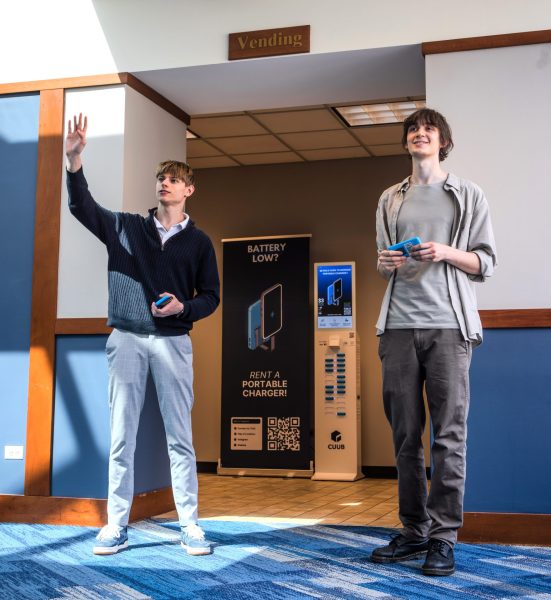
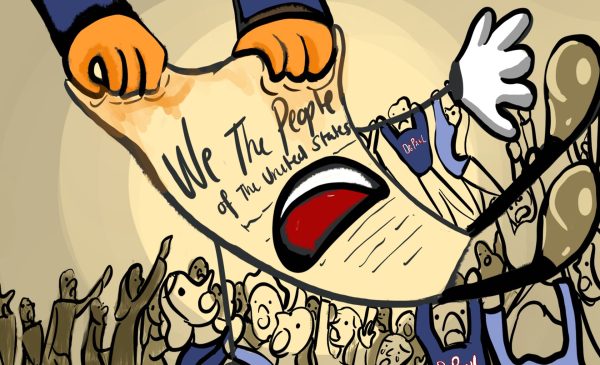
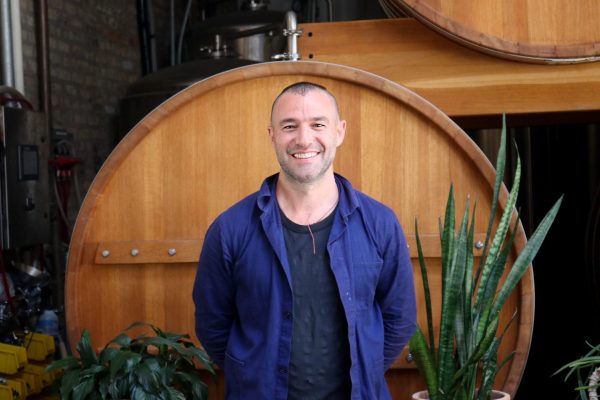
צילום בוק בת מצווה • Jul 9, 2018 at 9:02 am
Thanks for the tip
pedro • Jun 28, 2018 at 11:05 am
thanks
Zain • Jun 21, 2018 at 5:39 am
I used to suffer from HERPES SIMPLEX VIRUS for about 3 years. No medications or treatments ever really did anything for me (i tried them all no one work. but I was actually able to completely cure HERPES naturally after countless hours of online research. What worked for me is as follows: I saw Dr CAMALA Information online that he normally cure and treat disease and infirmities with his Herbal Medicine, I never really believed the people who where recommending him thou i saw on blog about 6 people where also testifying on how they were cured by Dr CAMALA, and still Ellen recommend Dr CAMALA who uses herbal medication to cure HERPES SIMPLEX VIRUS and gave me his email, so i mail him He told me all the things I need to do and also give me instructions to take, which I followed properly.Before I knew what is happening after two weeks the HERPES SIMPLEX VIRUS that was in my body got vanished. so if you are also heart broken and also need a help, . if you are infected with any disease like HIV,AIDS, CANCER,HERPES SIMPLEX VIRUS, or any other disease you can also be happy like me by contacting…..
Name: Dr.CAMALA
Email him: dr.camalahivadscure@yahoo.com
What apps Number: +2349055637784
I“m given you 100% grantee, soon as you have getting in touch
with Dr.CAMALA your problems will be solved accurately.
Thanks..